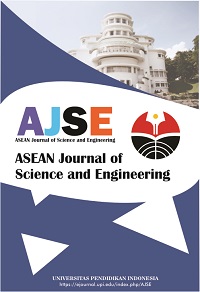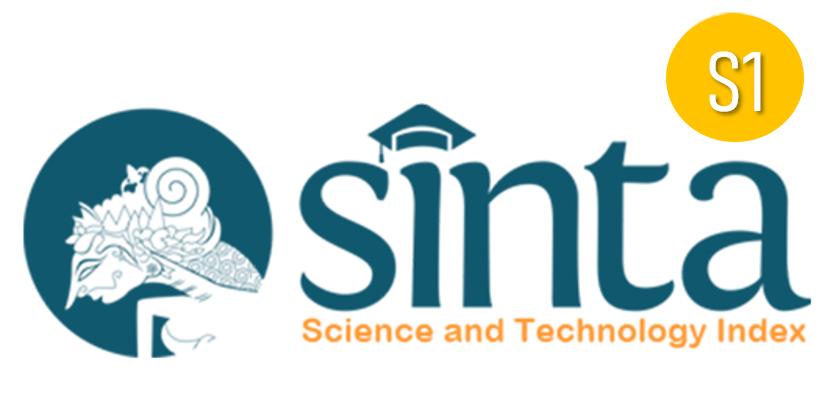Assessment of the Condition of Pump Units Based on Vibration Diagnostic Indicators to Support Sustainable Development Goals (SDGs) in Sustainable Water Infrastructure
Abstract
This study evaluates centrifugal pump health using vibration indicators and artificial intelligence for predictive maintenance in irrigation. A refurbished pump was equipped with accelerometers to capture signals under normal, underload, and overload conditions. Fast Fourier transform and wavelet packet analysis extracted features, which were classified by a convolutional neural network. The model distinguished unbalance, bearing wear, cavitation, misalignment, and normal operation with ~94% accuracy, maintaining robustness in turbid water. Integrating physics-based processing with AI proved effective: spectral and time-frequency features revealed fault mechanisms, while neural networks captured nonlinear patterns under noise. Compared to threshold monitoring, this method reduced false alarms by over one-third and halved fault detection time, enhancing reliability, reducing maintenance, and supporting the SDGs.
Keywords
Full Text:
PDFReferences
Molina, D.A.B., Restrepo, R.R., Forero, J.E.D., and Toscano, A.D.R. (2021). Computational analysis of different turbulence models in a vane pump simulation. Indonesian Journal of Science and Technology, 6(1), 159-182.
Glovatskii, O., Kalimbetov, B., Ergashev, R., Kholbutaev, B., Pardaev, M., Ergasheva, G., Nasirova, N., and Khimmataliev, D.O. (2025). Modernization of Submersible Pump Designs for Sustainable Irrigation: A bibliometric and experimental contribution to sustainable development goals (SDGs). Indonesian Journal of Science and Technology, 10(3), 427-438.
Ergashev, R.R., Ergasheva, G.S., Bekchanov, F.A., Kayumova, D.N., Teshaboeva, F.R., Dilova, N.G., and Karimov, R.R. (2025). Assessment of the condition of pump units based on vibration diagnostic indicators supported by artificial intelligence (AI) and completed with bibliometric literature review. ASEAN Journal of Science and Engineering, 5(3), 495-520.
Bhosale, S.K. (2022). Development of a solar-powered submersible pump system without the use of batteries in agriculture. Indonesian Journal of Educational Research and Technology, 2(1), 57-64.
Irawan, A.K., Rusdiana, D., Setiawan, W., Purnama, W., Fauzi, R.M., Fauzi, S.A., Alfani, A.H.F., and Arfiyogo, M.R. (2021). Design-construction of a solar cell energy water pump as a clean water source for people in Sirnajaya village, Gununghalu district. ASEAN Journal of Science and Engineering Education, 1(1), 15-20.
Smith, J., Johnson, L., and Patel, K. (2023). Fault diagnosis of centrifugal pumps using vibration analysis. Mechanical Systems and Signal Processing, 110, 356–368.
Kumar, A., and Singh, M. (2024). Vibration analysis in pump units for predictive maintenance. Journal of Sound and Vibration, 456, 85–97.
Rakhmatov, A. (2022). Diagnostics of pump aggregates in Uzbekistan’s irrigation systems. TIIAME Journal of Water and Agriculture, 5(2), 43–49.
Liu, Y., Zhang, T., Zhao, H., and Chen, P. (2022). Pump fault detection based on wavelet packet transform and neural networks. IEEE Transactions on Industrial Electronics, 70(3), 1981–1990.
Yang, F., and Wang, Z. (2023). Spectral feature extraction for fault diagnosis in hydraulic machinery. International Journal of Mechanical Sciences, 178, 105–112.
Antoni, J. (2009). Cyclostationarity by examples. Mechanical Systems and Signal Processing, 23(4), 987–1036.
Yan, R., Gao, R. X., and Chen, X. (2020). Machine fault diagnosis based on deep learning. Mechanical Systems and Signal Processing, 98, 403–417.
Rezaei, M., Ghorbani, A., & Saidi, H. (2023). Condition monitoring of water pumps using accelerometer sensors. Journal of Vibration Engineering and Technologies, 12(4), 329–339.
Ragadhita, R., Fiandini, M., Al Husaeni, D.N., and Nandiyanto, A.B.D. (2026). Sustainable development goals (SDGs) in engineering education: Definitions, research trends, bibliometric insights, and strategic approaches. Indonesian Journal of Science and Technology, 11(1), 1-26.
Maryanti, R., Rahayu, N. I., Muktiarni, M., Al Husaeni, D. F., Hufad, A., Sunardi, S., and Nandiyanto, A. B. D. (2022). Sustainable development goals (SDGs) in science education: Definition, literature review, and bibliometric analysis. Journal of Engineering Science and Technology, 17(6), 161-181.
Abduh, A., Achmad, S.F., Syam, C., Samad, S., Arham, M., Mustafa, M., and Pandang, A. (2026). Dataset on the number of schools, teachers, and students in Sulawesi, Indonesia: kindergarten, primary, junior, senior high, vocational, and Islamic boarding schools with educational access, quality, and cultural implications to solve challenges and strategies in education management and support Sustainable Development Goals (SDGs). ASEAN Journal of Educational Research and Technology, 4(1), 89-116.
Al-Obaidi, A.S.M. (2026). The Journal of Engineering, Science and Technology (JESTEC): A bibliometric insight into materials research trends and innovation to support Sustainable Development Goals (SDGs). ASEAN Journal for Science and Engineering in Materials, 5(1), 101-122.
Apriliani, A., Waahyudin, C., Ramdani, F.T., Martin, A.Y., Syahrudin, D., Hernawan, D., and Salbiah, E. (2026). Techno-economic analysis of sawdust-based trash cans and their contribution to Indonesia’s green tourism policy and the Sustainable Development Goals (SDGs). ASEAN Journal for Science and Engineering in Materials, 5(1), 17-36.
Awalussillmi, I., Febriyana, K.R., Padilah, N., and Saadah, N.A. (2023). Efforts to improve sustainable development goals (SDGs) through education on diversification of food using infographic: Animal and vegetable protein. ASEAN Journal of Agricultural and Food Engineering, 2(2), 113-120.
Basnur, J., Putra, M.F.F., Jayusman, S.V.A., and Zulhilmi, Z. (2024). Sustainable packaging: Bioplastics as a low-carbon future step for the sustainable development goals (SDGs). ASEAN Journal for Science and Engineering in Materials, 3(1), 51-58.
Di, R., Sawangboon, T., and Chano, J. (2025). Enhancing innovative thinking through a theory-based instructional model in design education to support Sustainable Development Goals (SDGs). ASEAN Journal of Educational Research and Technology, 4(3), 311-332.
Haq, M.R.I., Nurhaliza, D.V., Rahmat, L.N., and Ruchiat, R.N.A. (2024). The influence of environmentally friendly packaging on consumer interest in implementing zero waste in the food industry to meet sustainable development goals (SDGs) needs. ASEAN Journal of Economic and Economic Education, 3(2), 111-116.
Henny, H., Budi, A.H.S., Andriyansyah, M., Ar Rozzak, M.R., Baru, M.M., and Masek, A. (2025). Hazard identification, risk assessment, and determining control (HIRADC) for workplace safety in manufacturing industry: A risk-control framework complete with bibliometric literature review analysis to support sustainable development goals (SDGs). ASEAN Journal for Science and Engineering in Materials, 4(2), 267-284.
Imaniyati, N., Ratnasari, C.D., and Adman, A. (2025). Enhancing job satisfaction through human resource information systems and communication: A commitment-based approach to achieve Sustainable Development Goals (SDGs) in education-oriented organizations. ASEAN Journal of Educational Research and Technology, 4(2), 237-254.
Keisyafa, A., Sunarya, D.N., Aghniya, S.M., and Maula, S.P. (2024). Analysis of student’s awareness of sustainable diet in reducing carbon footprint to support sustainable development goals (SDGs) 2030. ASEAN Journal of Agricultural and Food Engineering, 3(1), 67-74.
Khamdamovna, K.S. (2025). Enhancing professional readiness in vocational education through an integrative approach aligned with the Sustainable Development Goals (SDGs). ASEAN Journal for Science Education, 4(2), 143-154
Makinde, S.O., Ajani, Y.A., and Abdulrahman, M.R. (2024). Smart learning as transformative impact of technology: A paradigm for accomplishing sustainable development goals (SDGs) in education. Indonesian Journal of Educational Research and Technology, 4(3), 213-224.
Maryanti, R., Rahayu, N. I., Muktiarni, M., Al Husaeni, D. F., Hufad, A., Sunardi, S., & Nandiyanto, A. B. D. (2022). Sustainable development goals (SDGs) in science education: Definition, literature review, and bibliometric analysis. Journal of Engineering Science and Technology, 17(6), 161-181.
Maulana, I., Asran, M.A., and Ash-Habi, R.M. (2023). Implementation of sustainable development goals (SDGs) no. 12: Responsible production and consumption by optimizing lemon commodities and community empowerment to reduce household waste. ASEAN Journal of Community Service and Education, 2(2), 141-146.
Nurjamin, A., Nurjamin, L.R., Fajriah, Y.N., Nurjamin, A.K., and Firdaus, H.A. (2026). Integrating generative artificial intelligence (AI)-based multimodal learning in education to enhance literacy aligned with Sustainable Development Goals (SDGs). ASEAN Journal of Educational Research and Technology, 4(1), 71-88.
Nurnabila, A.T., Basnur, J., Rismayani, R., Ramadhani, S., and Zulhilmi, Z. (2023). Analysis of the application of mediterranean diet patterns on sustainability to support the achievement of sustainable development goals (SDGs): Zero hunger, good health and well beings, responsible consumption, and production. ASEAN Journal of Agricultural and Food Engineering, 2(2), 105-112.
Ragadhita, R., Nandiyanto, A.B.D., Farobie, O., Kurniawan, T., and Bilad, M.R. (2026). Definition and role of sustainable materials in reaching global Sustainable Development Goals (SDGs) completed with bibliometric analysis. ASEAN Journal for Science and Engineering in Materials, 5(1), 53-100.
Rahmah, F.A., Nurlaela, N., Anugrah, R., and Putri, Y.A.R. (2024). Safe food treatment technology: The key to realizing the sustainable development goals (SDGs) zero hunger and optimal health. ASEAN Journal of Agricultural and Food Engineering, 3(1), 57-66.
Sesrita, A., Adri, H.T., Suherman, I., Rasmitadila, R., and Fanani, M.Z. (2025). Production of wet organic waste ecoenzymes as an alternative solution for environmental conservation supporting sustainable development goals (SDGs): A techno-economic and bibliometric analysis. ASEAN Journal for Science and Engineering in Materials, 4(2), 245-266.
Syahrudin, D., Roestamy, M., Fauziah, R.S.P., Rahmawati, R., Pratidina, G., Purnamasari, I., Muhtar, S., and Salbiah, E. (2026). Techno-economic analysis of production ecobrick from plastic waste to support sustainable development goals (SDGs). ASEAN Journal for Science and Engineering in Materials, 5(1), 9-16.
Wiyanarti, E., and Nurjannah, A.N. (2026). Influence of self-efficacy on affective learning outcomes in social studies education toward achieving Sustainable Development Goals (SDGs). ASEAN Journal of Educational Research and Technology, 4(1), 1-18.
Ximenes, S.M. (2025). School feeding program and Sustainable Development Goals (SDGs) in education: Linking food security to learning outcomes in Timor-Leste. ASEAN Journal for Science Education, 4(2), 155-168.
DOI: https://doi.org/10.17509/ajse.v6i2.90208
Refbacks
- There are currently no refbacks.
Copyright (c) 2025 Universitas Pendidikan Indonesia

This work is licensed under a Creative Commons Attribution-ShareAlike 4.0 International License.












